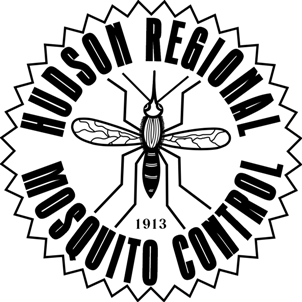Our Program
History
Hudson County had one of the first mosquito control programs in New Jersey. Established in 1913, it was originally known as the Hudson County Mosquito Extermination Commission. In 1971 the program was decommissioned and absorbed by the Hudson County Department of Public Resources. In 2004 the county empowered the Hudson Regional Health Commission with providing mosquito control services for the county. Today the program is known as the Hudson Regional Mosquito and Vector Control Program.
Rationale
The Hudson Regional Mosquito and Vector Control Unit has two primary goals. The first is to protect the citizens and visitors of Hudson County from mosquito-borne diseases such as West Nile Virus. The second goal is to minimize the negative impact of nuisance mosquitoes on outdoor recreational activities. These goals are achieved through a comprehensive approach, employing integrated pest management principles in a program that is environmentally sensitive, fiscally prudent, and operationally effective.
Although primarily urban, there is a surprising variety of mosquito habitats in Hudson County. The county is a peninsula bounded by Newark Bay and the Passaic and Hackensack Rivers on the west, by the Hudson River and New York Harbor on the east, by the Kill Van Kull on the south (separating the City of Bayonne and Staten Island, New York) and by Bergen County on the north. The Hackensack River bisects the county and is surrounded by a 10,000 acre wetland tidal marsh known as the Hackensack Meadowlands. As a result, the highest population density in the State is positioned in a county in which 25% of the total physical area is either permanently or periodically under water. Tidal wetlands provide ideal conditions for Ochlerotatus sollicitans. Permanent pockets within these wetlands produce Culex salinarius in abundance. Inland marshes produce large numbers of Aedes vexans. In addition, neglected drainage ditches and culverts give rise to expansive populations of Culex pipiens. This close proximity of so many people to such expansive acreage of water capable of mosquito production validates the need for a comprehensive approach to mosquito control.
Surveillance
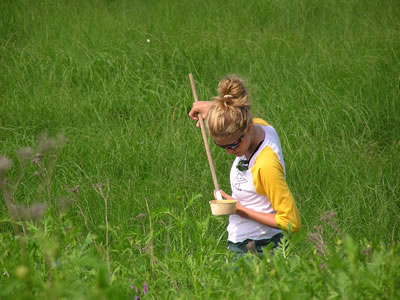 |
Larval SurveillanceOur inspectors routinely check over 250 sites in Hudson County for the presence of mosquito larvae. This lets us know where the mosquitoes are coming from. When larvae are found the site is treated with a larvicide. |
Adult SurveillanceIn addition to our larval surveillance, we also maintain a series of adult mosquito traps positioned throughout the county. These traps give us information such as the species of mosquitoes present and their relative abundance. This information is used to determine when adult control is necessary. |
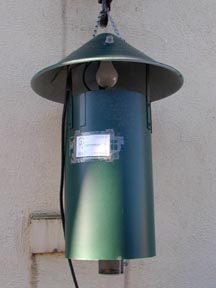 |
 |
Disease SurveillanceThe most important part of our program is monitoring for diseases such as West Nile virus and Eastern Equine Encephalitis (see the Links page for additional information on these diseases). We use special traps to collect female mosquitoes from across the county that have already taken a blood meal. These mosquitoes are then identified and sent to the State Department of Health to be screened for viruses. |
Control
Once a problem has been identified, we take the necessary actions to eliminate or reduce the problem.
Larval ControlA relatively small body of water can produce thousands of mosquitoes. By targeting the sources of larval production, we can eliminate huge numbers of mosquitoes at one time before they become adults. We use low impact products for our larval control such as bacteria and insect growth regulators. See the Pesticide Information page for more information about the products that we use for larval mosquito control. |
 |
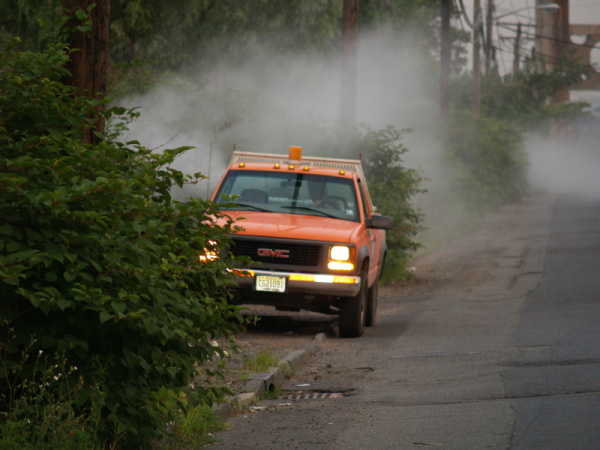 |
Adult ControlUnfortunately, we cannot find every source of mosquito larvae. When large populations of adult mosquitoes emerge, or when disease transmission is of concern, we apply adulticides to reduce the number of adult mosquitoes in an area. We use short-lived low toxicity products for our adult control. See the Pesticide Information page for more information about the products that we use for adult mosquito control. |
Biocontrol
Biocontrol is a method of controlling mosquitoes utilizing natural enemies which eat the mosquitoes. The New Jersey State Mosquito Control Commission operates a program which provides organisms for the biological control of mosquitoes to the county mosquito control agencies.
Mosquito FishMany bodies of water in Hudson County have naturally occurring populations of killifish or "killies" which will eat mosquito larvae. However, when these fish are absent, we can stock waters with the mosquito fish Gambusia affinis. This fish is an effective predator of mosquito larvae and in some cases can eliminate mosquito problems from an area without the use of pesticides. |
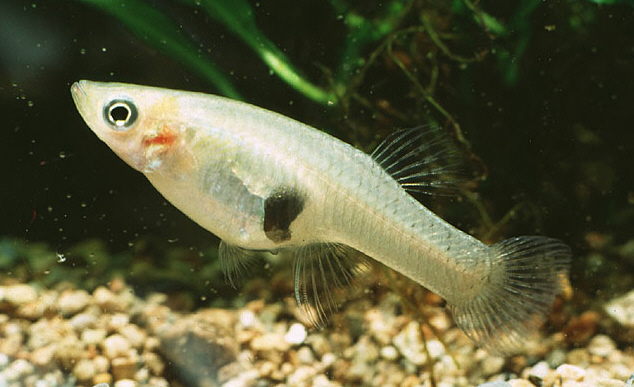 |
Source Reduction
The best method of mosquito control is to eliminate the sources of mosquito production. Unfortunately this is usually the most labor intensive, expensive, and complicated method. However, we conduct many activities to eliminate sources of mosquito production.
Tire RemovalIllegally dumped tires are a big problem in Hudson County. Not just from a pollution standpoint, but because of the mosquitoes they produce. During the off season, we focus on collecting and properly disposing of tires from around the county. |
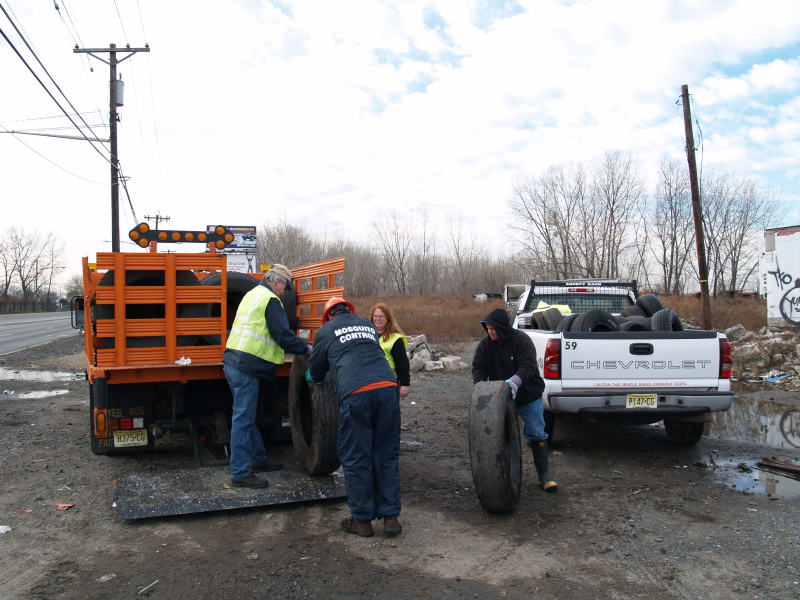 |
|
|
Water ManagementIn areas that chronically produce mosquitoes, it is sometimes worthwhile to manage the land so as to reduce mosquito production. For example, restoring tidal flow to wetland areas washes immature mosquitoes out into the rivers before they can emerge. Improving drainage eliminates standing water and prevents mosquito production altogether. Filling in low spots prevents water from accumulating there. |
Service Requests
We can't check everywhere, so we rely on resident service requests to help target mosquito problems. If you have a problem with mosquitoes in Hudson County, call (201) 223-1133 to register a complaint. Do not email complaints. Requests are investigated as quickly as possible and we will take whatever actions are necessary to help reduce or eliminate your mosquito problems. When necessary, local Health Officers are involved to issue abatement notices to citizens who do not correct mosquito problems around their homes. Be sure to check our Mosquito Biology page before registering a complaint to be sure you are dealing with mosquitoes and not some look-alike.
